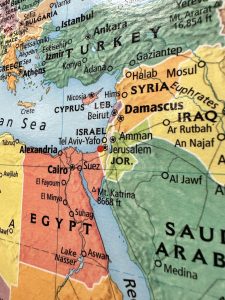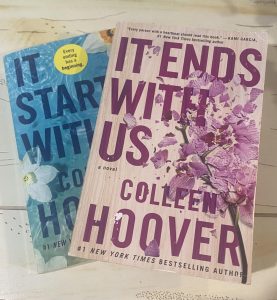Merry Christmas or Happy Holidays?
2022 brings about debates on controversial seasonal greetings
December 19, 2022
As winter deepens, many familiar sights, sounds, and smells begin to fill the air. It’s the first glimpse of sparkling flurries, the crackle of the fire on a chilly night. It’s the jingle of sleigh bells and the delightful scent of baking gingerbread. All of these sentimental sensations are the hallmark of winter and simultaneously the holiday season. But, as you meet your peers in the hallways or greet your fellow shoppers on the sidewalk, what will you say? Will it be “Merry Christmas”? “Happy Holidays”? Something else entirely? In recent years controversy has tainted many aspects of the holidays, and although intentions may vary, it’s important to remember the spirit of love that lies behind friendly seasonal interactions.
In the 21st century, it is increasingly difficult to navigate the waters of conversation, especially around the holidays. Although winter greetings look trivial, it seems that politics, traditions and preferences all must be accounted for in a few short words.
The most traditional greeting, and the one that we will discuss first, is “Merry Christmas.” Stemming from Christian traditions and the birth of Jesus Christ, “Merry Christmas” focuses on the Christian holiday of Christmas specifically and throughout history has been one of the most widely used holiday greetings that has been expressed in many forms, including the first christmas card. It was believed that the term was first used in 1699 by an English admiral who wrote it in a letter, and from there the saying has evolved into a traditional greeting with both religious and secular connotations.
Another more recently widespread holiday greeting is “Happy Holidays.” This greeting doesn’t focus on any specific winter holiday, and, for many, that’s the point. Christmas certainly isn’t the only celebration during the holiday season, and “Happy Holidays” is all encompassing and without religious ties, and therefore can apply to Hanukkah, Kwanzaa, Las Posadas and New Years, just to name a few. It also has a debated origin story similar to other holiday greetings, as some attribute it to the very first holiday ads using the term as a catchy marketing ploy, while others believe it stems from the word “haligdæg,” an Old English word that can be translated to “holy day.”
Although these two greetings are viewed as among the most popular throughout the season, there are countless others, including “Season’s Greetings,” “Warmest Wishes,” “Feliz Navidad.”
The great debate between holiday salutations has long been a heated topic of discussion, and this year has been no exception, however there is something we seem to be missing in our search for the perfect greeting: the spirit behind the sayings.
Winter holidays are a time for people to come together in love, kindness, and cheer, no matter what is being celebrated. A friendly smile and wave can, and should, be accompanied by words of seasonal kindness, but it isn’t the phrase that’s important. These words can come from a place of religious belief, a desire to be inclusive, or simply an effort to foster connection, but in any case the emphasis shouldn’t be on dissension.
This holiday season, let’s take the weight of heated controversy out of our words and aim to simply spread love in a beloved season of celebration and joy.








